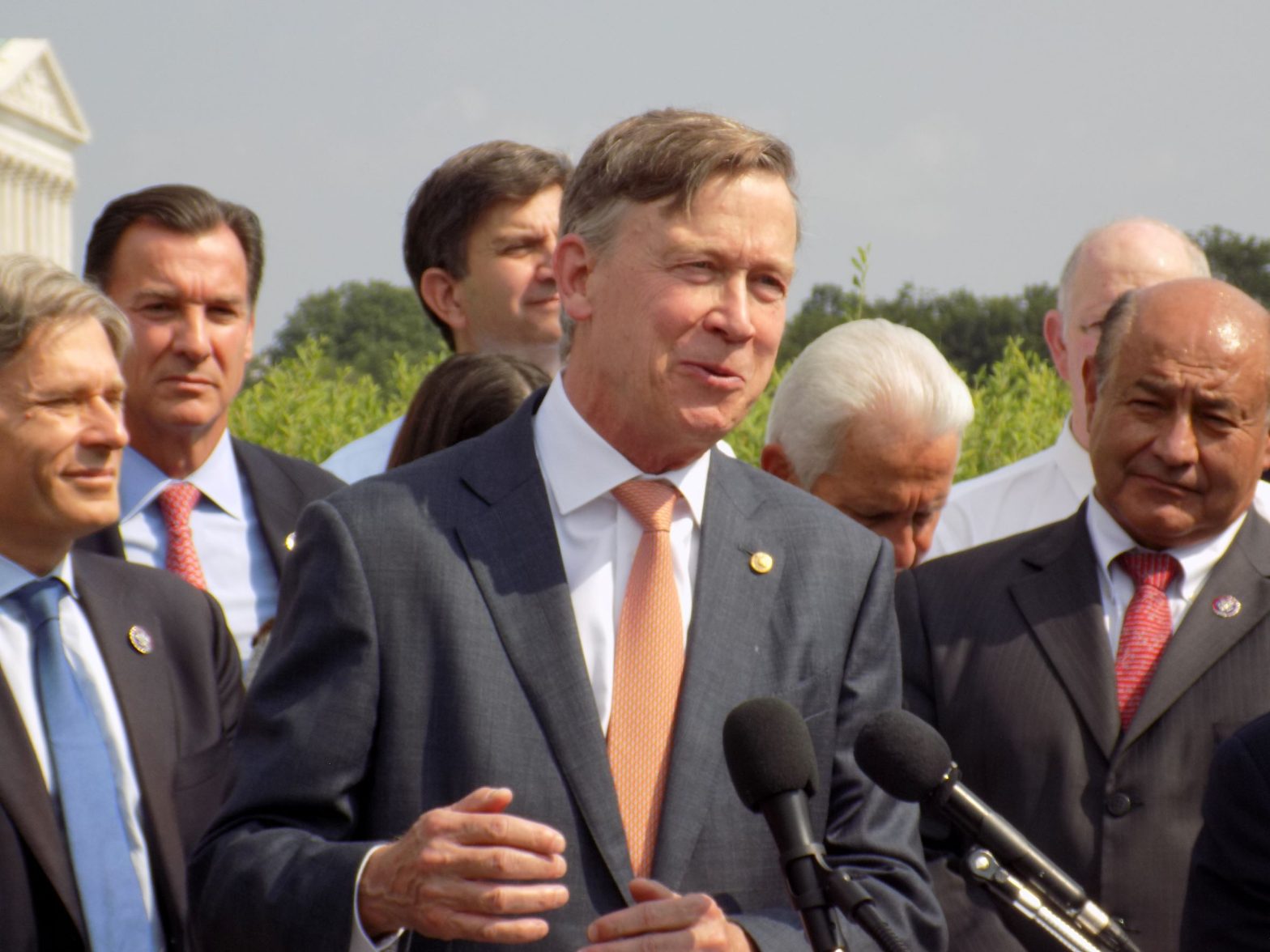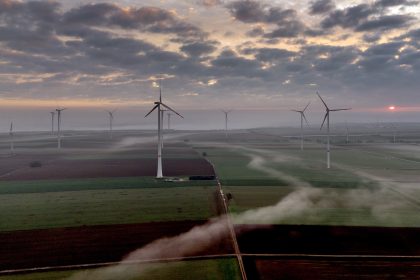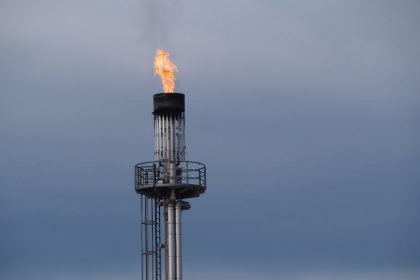Hickenlooper Pitches New FERC Authority To Help Biden’s Clean Energy Plan

WASHINGTON- The economic impact of the switch to clean energy may have the chance to make the transition a truly bipartisan issue, according to Sen. John Hickenlooper, D-Colo.
During an event Tuesday hosted by the Public Policy Institute on expanding power line capacity to enable renewable energy deployment, Hickenlooper described himself as “optimistic” that current discussions in the Senate can lead to transformative change around climate issues.
“By investing in transmission and the grid, we’re going to get a level of resiliency that, based on what we’ve seen this year, is sorely lacking in the existing system,” he said.
He made the case for a proposal he co-sponsored that he says would give clean energy some parity with how natural gas operates in the country, offering one way of catalyzing the changes needed to fulfill the Biden administration’s climate agenda.
The Biden clean energy plan, which has been described as potentially one of the “most aggressive ever enacted by the federal government,” proposed to move the country away from dirty energy.
The White House has said it plans to shift the country to “100% carbon-free electricity by 2035” in a fact sheet related to its multi-trillion-dollar infrastructure proposal.
It was part of the administration’s vow to reduce the country’s greenhouse emissions by 50%-52% by 2030 and has been frequently described as the centerpiece of its climate plan by commentators.
In 2020, about 40% of electricity in the U.S. came from natural gas while renewable sources contributed about 21%, according to a congressional fact sheet. Projections released earlier this year by the U.S. Energy Information Administration suggest that 33-57% of the country’s electricity in 2050 would come from renewable sources.
About 30 states and the District of Columbia already had a clean energy standard as of 2020, according to the fact sheet.
A report published in February by the National Academy of Arts and Sciences said that deep decarbonization is “technologically feasible,” but it will take a big shift to the energy system.
One of the changes needed is a proposal to give new federal authority, according to Hickenlooper.
He argued in favor of a bill he co-sponsored with Sen. Sheldon Whitehouse, D-R.I., and Rep.Mike Quigley, D-Ill., which aims to smooth out the regulatory process for the switch to clean energy.
That bill, the Streamlining Interstate Transmission of Electricity Act, would create a new authority at the Federal Energy Regulatory Commission, FERC, which would empower it to speed up the creation of long-range, inter-regional high voltage transmission lines.
“If you believe that climate change is serious, we have to give our institutions like FERC some level of authority to aggressively solve some of these disputes and it’s got to be in real-time,” Hickenlooper said on Tuesday.
Transmission lines are essential to achieving the big picture renewable energy goals of the administration, materials from the sponsors of the bill argue.
Currently, transmission lines have to undergo “significant hurdles due to the complex and intensive coordination” between various regulatory bodies, landowners, and the industry, they say.
“The first step to scaling up renewable energy is upgrading the nation’s electric grid,” Whitehouse said in prepared materials, adding, “Our proposals would make it easier to get clean energy from the remote locations where it is often generated to the homes and businesses where it is needed.”
The act, part of a couple of bills introduced to speed along the clean transition, was introduced to the Senate in August. It would create a new eminent domain authority, a written statement from one of the bill’s sponsors said.
Hickenlooper characterized the bill as a way to both ensure the creation of transmission lines, which he described as “high priority,” and also to ensure “robust protections” for private landowners.
During Tuesday’s event, Hickenlooper also commented that this sort of proposal will bring much-needed resiliency to American infrastructure.
In another update to the administration’s climate agenda this week, the House Energy and Commerce Committee voted on Tuesday to move forward the “Clean Electricity Performance Program,” following up on outlines of the Democrat’s budget reconciliation which included $150 billion for a clean energy standard.
While some in the popular press have touted it as a way to get natural gas out of the sector, analysis from Energy Wire, an energy-focused news service owned by Politico, has claimed that natural gas could still count as clean with the targeted adoption of carbon capture and storage technologies and similar techniques.

























